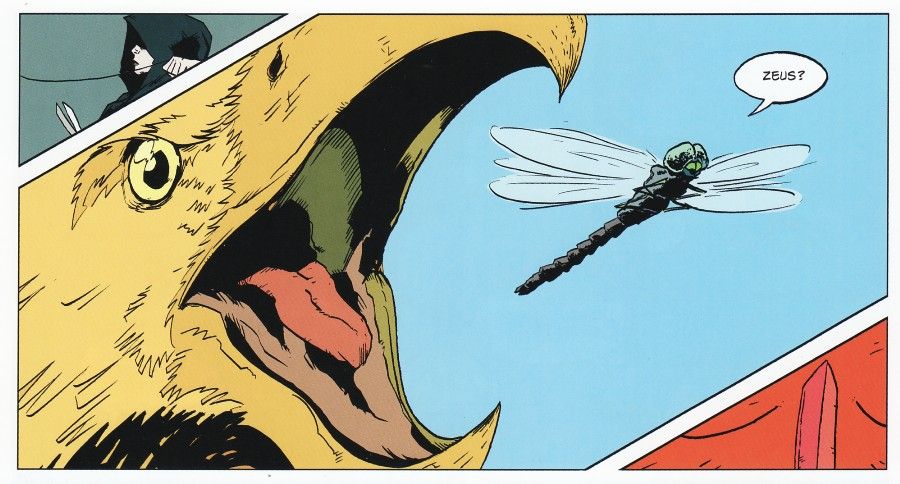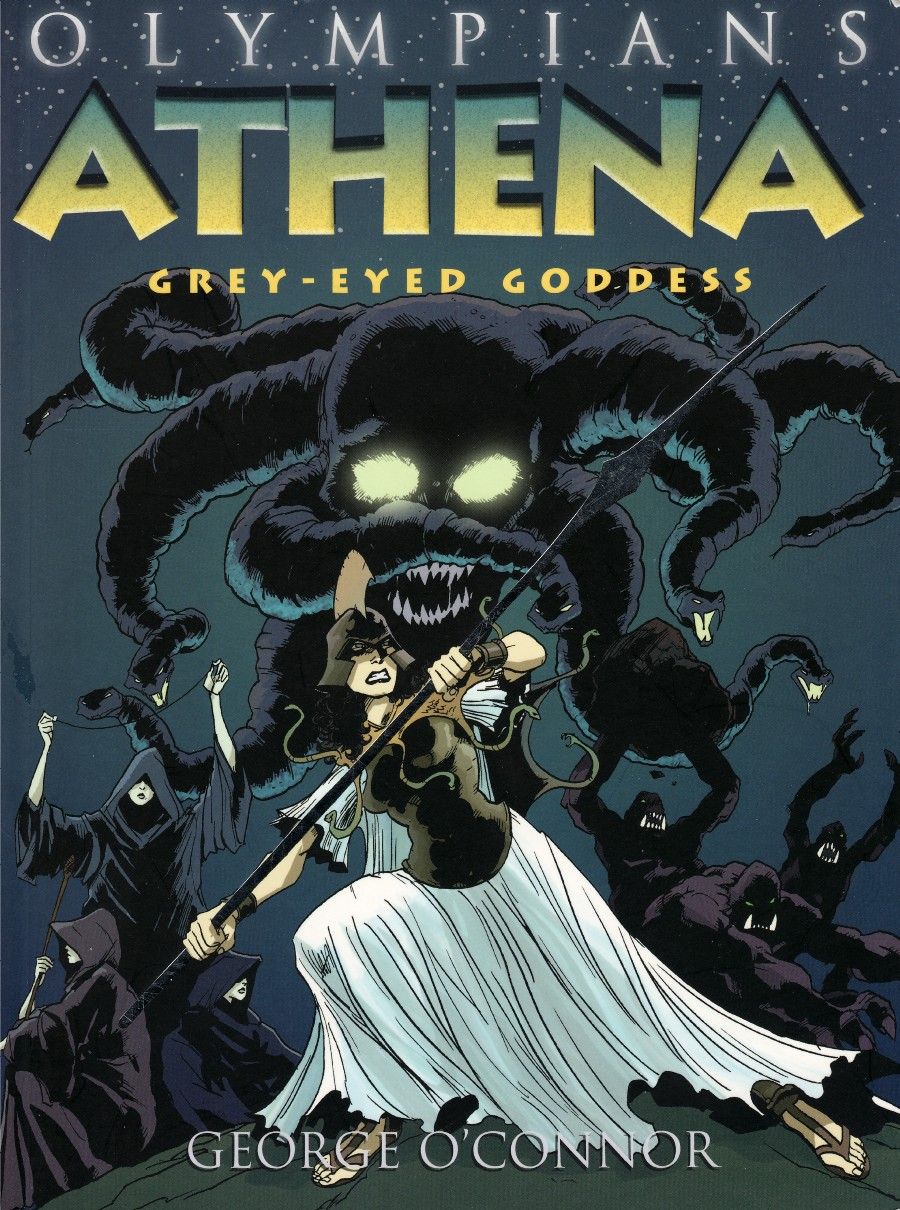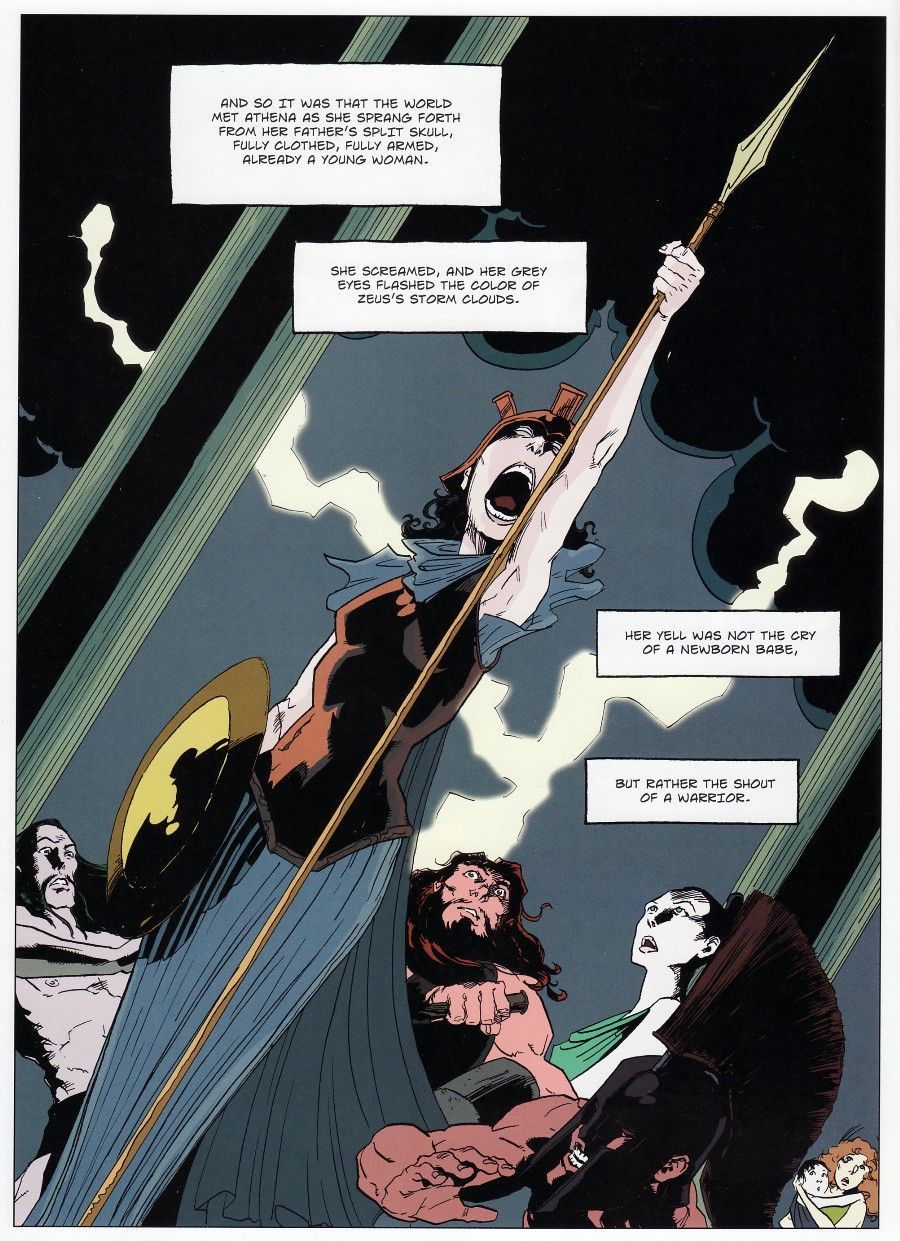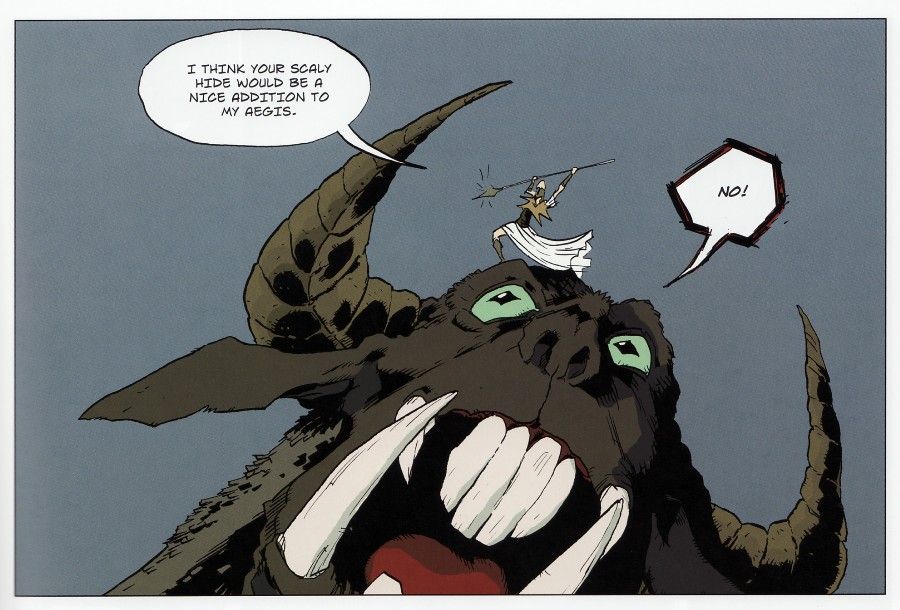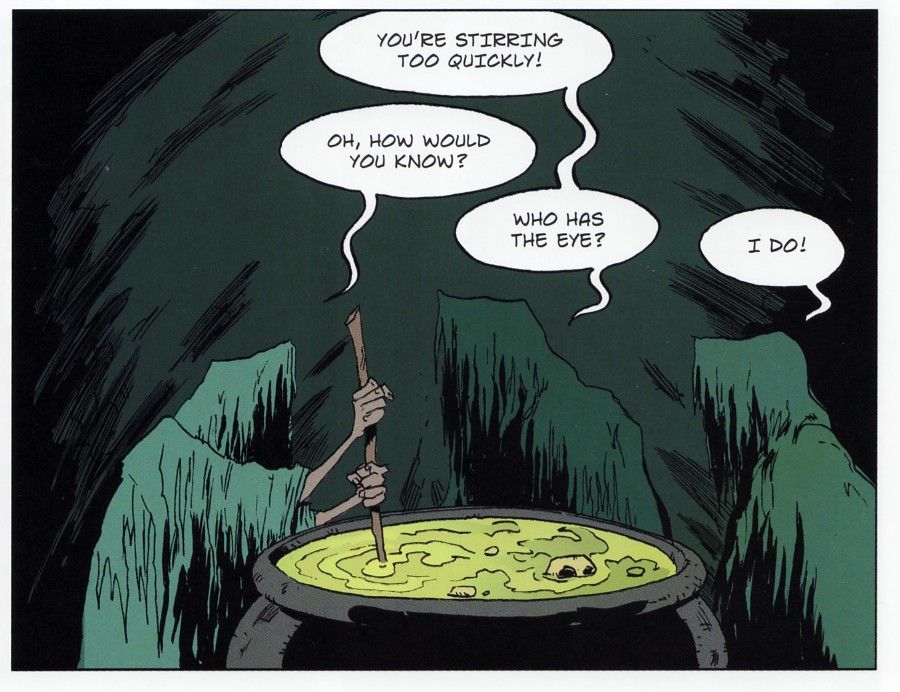Olympians: Athena, Grey-Eyed Goddess
Written and Illustrated by George O’Connor
First Second; $9.99
After loving the Zeus volume in George O’Connor’s Olympians series, I hoped that the other volumes in the series could live up to it. Zeus was surprising in the uniqueness of O’Connor’s designs and how well he succeeded at making it exciting as well as faithful to the myths. I had enough respect for O’Connor to expect another great volume, but still… one gets nervous.
O’Connor does succeed again with Athena, but he goes about it in a different way than he chose for Zeus. That’s nice in that it keeps the surprises coming, but it’s also necessary because of the nature of Athena’s mythology. While Zeus’ was a straight-out origin story with a single narrative running through it, Athena’s is made up of several unconnected events. To accommodate this, O’Connor has the Three Fates tell her tale.
This sounds like a straightforward device, but O’Connor adds depth to it by understanding the nature of the Fates’ storytelling and applying that to his book. The first Fate begins the story by spinning out the tale of Athena’s birth, then the other two add to it, weaving in other events until at last the full picture of the goddess is complete. It’s more than just a way to present the story; it’s a philosophy. And it works. Athena presents a view of the goddess that at least feels whole. As O’Connor points out, it’s not whole – that would require “a thousand walls with a hundred thousand tapestries” – but it is satisfying. And besides, Athena will undoubtedly show up in future volumes of the series.
Betrayal, giant monsters, and the Clash of the the Titans after the break.
I’m surprised that Marvel and DC haven’t latched onto and exploited their own versions of Athena, but I guess that’s sort of why O’Connor’s version feels so fresh and cool. Athena is the ultimate warrior woman; the original superheroine. She’s the goddess of war, but not the angry, violent part. That’s Ares. Athena’s the goddess of martial skill and strategy. She can kick Ares’ ass to Olympus and back. And while we don’t get to see that particular feat in this book, there are lots of other butts in need of booting.
Athena’s origin picks up where Zeus left off. Zeus is still married to Metis, but is starting to spend a lot of time with his sister Hera. What’s wonderful about O’Connor’s series is how powerfully he makes the point that this is bad. As Greek mythology is usually related, Zeus’ philandering is just who he is. We sort of wink at it; especially when Hera’s the one he’s cheating on because – let’s face it – Hera’s a bitch.
But Metis isn’t. Not how O’Connor portrays her. Metis is cute and funny and loyal and – oh yeah by the way – responsible for Zeus’ being able to defeat his child-eating father and take over the universe. Zeus was so dashing and heroic in his own book – and he hasn’t lost those qualities here – but his larger-than-lifeness has made him a bit resentful of Metis. Hera, on the other hand, is beautiful and regal. She possesses none of the pettiness and vindictiveness yet that she’s later known for. She looks and acts like a queen. And Zeus wants to trade up.
Later, of course, he’ll be just as unfaithful to Hera as he is to Metis now. I’m already looking forward to Hera’s story (in the next volume of the series), because I’m already feeling sorry for her. I can see where her negative qualities are going to come from and it’s going to be heart-breaking watching her become the person who seems to hate Hercules so unjustly.
Poor Metis doesn’t have the option of acting badly though. Taking a cue from his dad, Zeus tricks Metis and swallows her, keeping her alive in his head so that she can continue giving him helpful advice. What he doesn’t know is that Metis is pregnant.
She gives birth to Athena and raises her to adulthood right there inside Zeus’ head until finally it’s time for Athena to emerge – fully grown – from Zeus’ skull. Zeus loves her and welcomes her, but we can understand if Athena feels a bit like an outsider on Olympus. Certainly Hera wants nothing to do with her, but the other gods are also distrustful and stand-offish. Athena doesn’t stay on Olympus for long.
The Fates then go into a couple of stories about how Athena got her nickname, Pallas. I’ll leave those for you to discover, except to say that one of them bears a strong similarity to Wonder Woman’s origin and that the other involves a fight with a giant monster. We also learn the origin of Athena’s Aegis, the cape she was given by Zeus and would continue to modify throughout her life.
Rounding out the stories are some accounts of Athena’s intervention into human affairs. Thanks to Arachne and Medusa, we learn the folly of insulting the gods. I especially appreciated Medusa’s tale, which makes a lot more sense than the stupid version in the Clash of the Titans remake.
And speaking of that movie, the Fates also tell us all about Perseus and how Athena helped him defeat Medusa and the giant sea-monster and rescue Andromeda (whom O’Connor draws as if she actually does come from Ethiopia). If you haven’t seen the new Clash of the Titans yet, do yourself a favor and read O’Connor’s version instead. Or even if you have seen it, read Athena and cleanse your palate. The tapestry O’Connor weaves is powerful and cool and worthy of hanging on your wall long after you’ve put the Titans remake and Percy Jackson in the box for the garage sale.
Four out of five creepy, but funny old witches.

